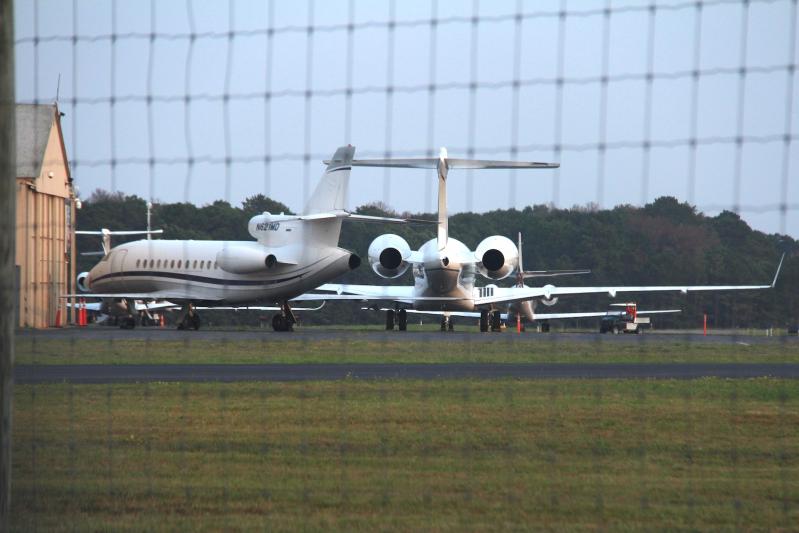The New York State Supreme Court judge who has consistently sided with plaintiffs in lawsuits that have blocked East Hampton Town from closing and reopening its airport as a private facility and implementing flight restrictions there handed the town a victory last Thursday, denying the plaintiffs’ motion to require the town’s outside counsel to return to the airport fund money received for work performed after he imposed a temporary restraining order to halt the town’s plans in May 2022.
Justice Paul Baisley Jr. also denied the town’s cross-motion to sanction the plaintiffs for seeking to require the town’s counsel to return its fees to the airport fund, which the town’s counsel deemed harassment and frivolous.
East End Hangars and Hampton Hangers contended that the town is in violation of a provision of the temporary restraining order that prohibits use of any airport funds or revenues for anything other than “the capital or operating costs of the airport, the local airport system; or other local facilities owned or operated by the airport owner or operator and directly and substantially related to the air transportation of passengers or property.”
Last September, the town board voted to increase the cap allocated for the Cooley law firm, one of the outside firms retained for airport matters, from $1.5 million to $2.7 million as “matters are still pending regarding the East Hampton Airport.” The town’s preliminary budget for 2023, Justice Baisley noted, allocated an additional $1.1 million for airport counsel fees.
Last year, the town asked that the temporary restraining order be vacated or modified and sought clarification as to what the Federal Aviation Administration allows airport funds — which come from landing fees, fuel sales, and rent from parcels on the airport property — to be used for. Through its outside counsel, the town argued that it could not have violated the T.R.O. if it complied with federal law that it contends “allows the payment of legal counsel as an adjunct of airport operation,” Justice Baisley wrote. “The town also contends that the F.A.A. has made it clear that such a highly regulated environment requires that the sponsor have access to and use of airport funds for legal matters.”
The town, he wrote, cites the F.A.A.’s “revenue use policy” as the longstanding interpretation of what is permitted under federal law, which includes “attorney fees . . . for services in support of an activity or project related to the airport.” He further cited prior litigation brought against the town by the National Business Aviation Association in ruling that airport revenue can be used for legal expenses.
James Catterson, an attorney for the plaintiffs, said in a statement provided to The Star that his clients “respectfully disagree with the court’s decision” and “plan to file a motion to reargue.”
In briefly discussing Justice Baisley’s ruling on Tuesday, Town Supervisor Peter Van Scoyoc said it was important that residents understand that “this litigation is not being funded by property tax revenues.” The airport is self-sufficient, he said.
The decisions are the latest in an ongoing struggle pitting the town board, which endeavored to alleviate residents’ complaints about relentless noise and air pollution from aircraft traveling to and from the airport, particularly that of jets and helicopters, against Blade Air Mobility, East End Hangars, and the Coalition to Keep East Hampton Airport Open. The three groups filed parallel lawsuits seeking to prevent the board’s plan to close the airport for 33 hours in May 2022 and reopen it as a private facility with a prior-permission-required framework in place, restricting aircraft to one takeoff and one landing per day, among other controls. That plan was thwarted when Justice Baisley sided with the plaintiffs, imposing the T.R.O. shortly before the airport’s scheduled closure and reopening. Fifteen months later, the temporary order remains in place.




